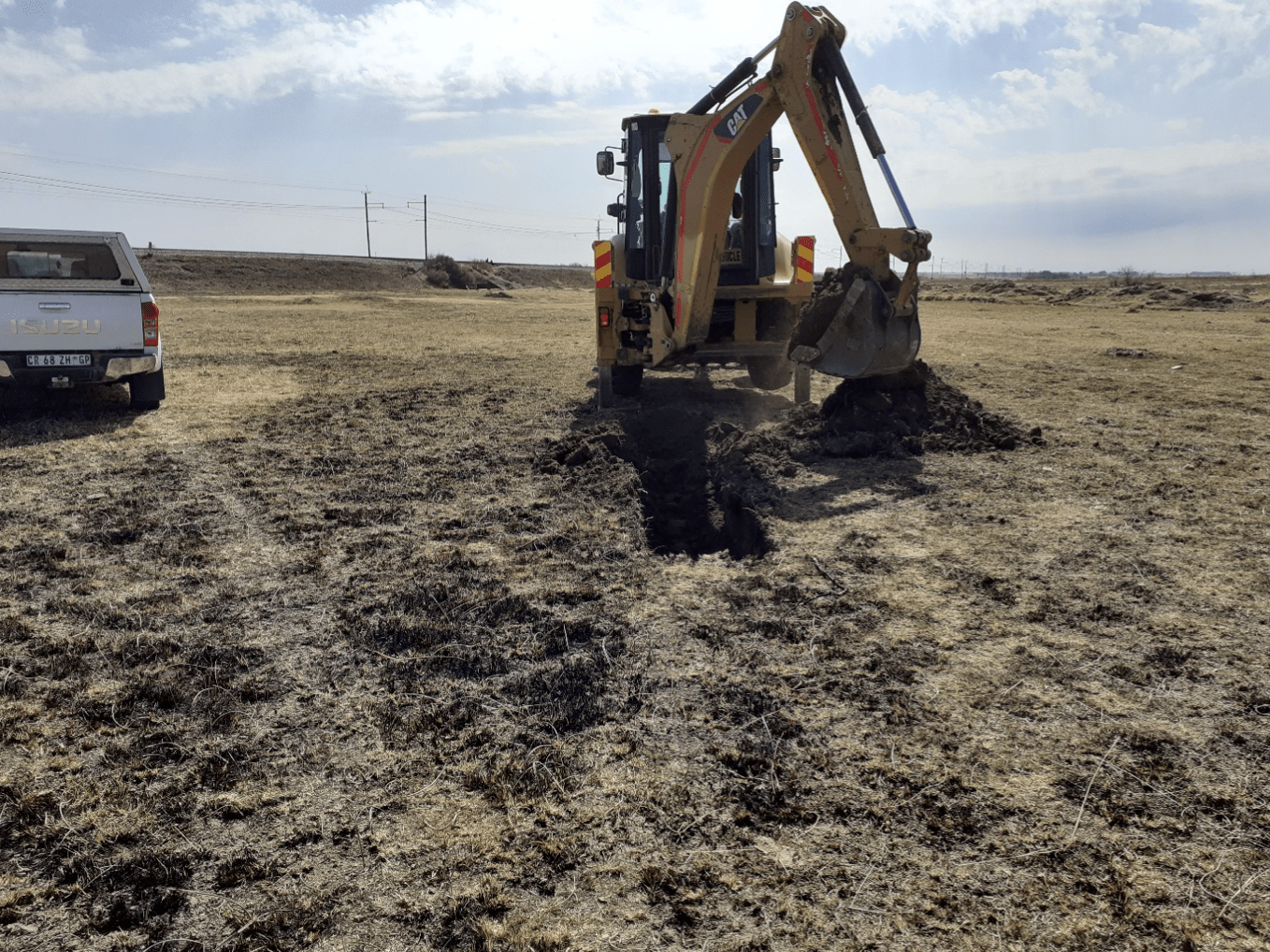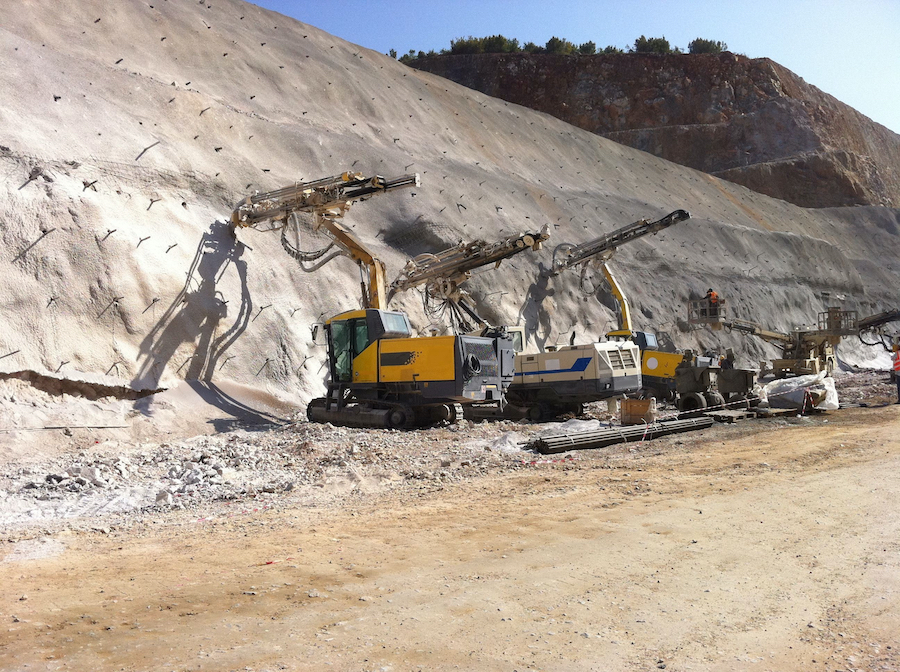Why All About Geotechnical Engineering Matters in Today's Infrastructure Advancement
Why All About Geotechnical Engineering Matters in Today's Infrastructure Advancement
Blog Article
The Value of Geotechnical Design in Resolving Environmental Obstacles and Enhancing Building And Construction Safety And Security
Geotechnical engineering offers as a keystone in the crossway of ecological stewardship and construction security, providing essential insights right into the habits of dirt and rock under various problems. By executing critical site examinations and tailored mitigation measures, geotechnical engineers play an essential duty in safeguarding both human lives and eco-friendly honesty.

Duty of Geotechnical Engineering
Geotechnical design plays an essential role in the design and building and construction of infrastructure by dealing with the habits of soil and rock products under various conditions. This area of design is vital for understanding the communication between frameworks and the ground, which includes identifying the load-bearing capability of soil, examining stability, and anticipating prospective settlement or failure.
Geotechnical engineers are accountable for carrying out site investigations, which include sampling and testing soil and rock to gather data on their physical and chemical residential or commercial properties. This info is crucial for creating foundations, keeping walls, and other earth-retaining frameworks that ensure safety and security and longevity. Additionally, geotechnical engineering notifies the option of appropriate construction approaches and materials, consequently lessening threats linked with dirt actions.
In addition, the integration of geotechnical engineering concepts into city planning and environmental monitoring is vital for dealing with obstacles such as ground contamination and groundwater administration. By understanding geotechnical factors, engineers can develop lasting options that improve the resilience of framework against all-natural hazards, while also advertising ecological stewardship. Ultimately, the function of geotechnical design is important for attaining safe, long lasting, and environmentally mindful building and construction practices.
Soil Erosion Reduction
Dirt erosion presents a significant danger to both ecological stability and infrastructure stability, influencing roughly 24 billion lots of fertile soil lost each year worldwide. This phenomenon is aggravated by elements such as logging, urbanization, and poor agricultural methods. Geotechnical design plays a critical function in creating effective soil disintegration reduction approaches that protect both the atmosphere and building jobs.
One strategy requires the implementation of erosion control techniques such as plants growing, which maintains dirt via origin systems. Additionally, the construction of keeping wall surfaces and terraces can successfully minimize surface overflow and secure at risk areas from erosion. Appropriate drain layout is additionally essential; it lessens water buildup and routes excess drainage far from essential frameworks.
Furthermore, geotechnical engineers utilize soil stabilization strategies, such as the application of geotextiles and biodegradable mats, to boost soil cohesion and protect against destruction - all about geotechnical engineering. Normal tracking and assessment of erosion-prone websites enable prompt interventions, making certain long-lasting sustainability. By integrating these methods, geotechnical engineering not just reduces the influences of soil disintegration but likewise adds to the strength of infrastructure versus ecological challenges, inevitably fostering a much safer and more sustainable constructed environment
Groundwater Security Strategies
Groundwater serves as a vital resource for alcohol consumption water, farming, and industrial procedures, making its protection crucial for environmental sustainability and public health and wellness. Reliable groundwater protection approaches are important in reducing contamination threats and ensuring the durability of this source.

Routine surveillance of groundwater quality is likewise essential, allowing very early discovery of contamination sources and helping with prompt removal initiatives. Using advanced innovations, such as geophysical studies and remote noticing, help in recognizing possible hazards to groundwater gets.
Furthermore, public education and stakeholder engagement are crucial, fostering community support for groundwater security initiatives. about geotechnical engineering. By integrating regulatory measures, technical innovations, and area participation, we can create a comprehensive framework my site that safeguards groundwater find out here sources while advertising sustainable development and building and construction methods
Landslide Danger Management
Landslides pose significant hazards to both human security and framework, making efficient risk management methods vital. Geotechnical engineering plays an important role in recognizing, examining, and mitigating landslide dangers. A comprehensive understanding of incline stability, dirt mechanics, and hydrology is essential for establishing effective danger administration plans.
The initial step in landslide threat management includes complete site examinations, that include geological mapping and dirt testing. These investigations help designers assess the possibility for landslides by determining essential variables such as slope angles, soil composition, and water web content. Utilizing advanced technologies such as remote sensing and geophysical studies can improve the precision of these evaluations.
As soon as threats are identified, suitable reduction measures can be implemented. These may consist of engineering services such as preserving walls, water drainage systems, and slope stabilization strategies. Monitoring systems ought to be developed to spot signs of ground motion and adjustments in water levels, enabling for proactive treatments.

Enhancing Building And Construction Safety And Security
Building and construction websites usually present a myriad of hazards that can threaten employee safety and security and job stability. Geotechnical engineering plays an important function in improving construction safety by providing essential understandings right into subsurface conditions. Through extensive soil and rock evaluation, geotechnical designers can determine potential threats, such as dirt instability, groundwater problems, and seismic vulnerabilities, which may compromise the safety and security of building and construction tasks.
Applying geotechnical remedies, such as proper structure design and the usage of preserving frameworks, minimizes these risks significantly. These options check this site out not only ensure the stability of the structures being constructed yet likewise create a more secure working atmosphere for building and construction personnel.
In addition, cultivating a society of security through training and adherence to developed security procedures further boosts building and construction site safety. By incorporating geotechnical proficiency right into the preparation and execution stages, building and construction jobs can achieve greater security standards, inevitably safeguarding workers and making certain successful task completion.
Conclusion
In final thought, geotechnical engineering offers as an important technique in promoting and dealing with ecological obstacles building safety and security. Through effective soil disintegration reduction, groundwater protection techniques, and landslide danger monitoring, geotechnical engineers contribute to the advancement of resistant framework.
Geotechnical design offers as a keystone in the crossway of environmental stewardship and building security, offering important understandings right into the habits of soil and rock under various conditions. Geotechnical design informs the choice of proper building methods and materials, thus decreasing risks connected with dirt behavior.
Geotechnical design plays a pivotal duty in establishing efficient dirt erosion mitigation approaches that protect both the atmosphere and construction projects.
In addition, geotechnical engineers employ dirt stabilization strategies, such as the application of geotextiles and naturally degradable mats, to boost soil communication and stop degradation. Via detailed dirt and rock analysis, geotechnical designers can determine possible dangers, such as dirt instability, groundwater problems, and seismic susceptabilities, which may endanger the security of building and construction activities.
Report this page